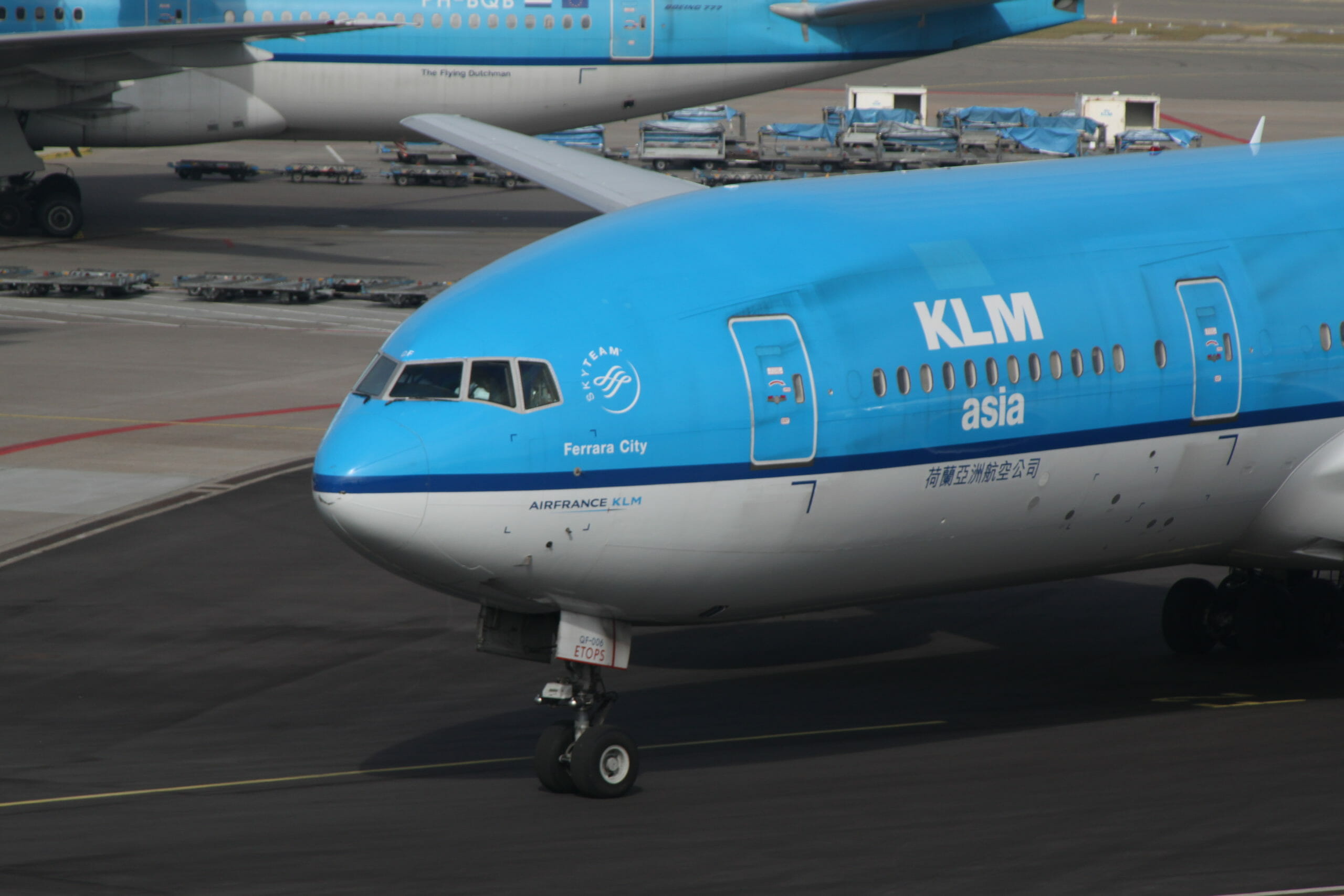
KLM Boeing777 scaled
The Dutch government finally agreed on the state aid package for KLM on June 26, announcing the airline will receive EUR 3.4 billion in loans and state-guaranteed loans. A majority of Dutch parliament approved the package on July 2, but not without critical remarks.
After the French government announced its EUR 7 billion package on April 24, Dutch Secretary of Finance Wopke Hoekstra held a hastily organized press conference that same evening in which he announced a EUR 2-4 billion plan. That is has taken two months to negotiate the plan has a number of reasons.
Position KLM and Schiphol guaranteed
For one, the Dutch wanted to seek guarantees about the position of KLM and its Amsterdam Schiphol hub within the Air France-KLM holding. When the two airlines merged back in 2003, KLM’s position at Schiphol was only guaranteed for five years. These state guarantees were extended in 2010 and reconfirmed in 2015, but KLM, the government, and parliament always felt uncomfortable about the one-sided option to cancel these guarantees within just a nine-month period. Secretary of Transport Cora van Nieuwenhuizen was most happy to confirm that the terms have been renegotiated and extended by five years, safeguarding KLM’s and Schiphol’s hub position until the end of 2025.
To monitor that the government’s interests inside KLM and Air France-KLM are guaranteed, the government negotiated the placing of a state agent. He or she is expected to be nominated later this year and will have the authority to attend all of KLM’s board meetings, ask for information and documents and call on the government’s assistance if its interests are jeopardized. Reaching an agreement on this agent also took some months.
Direct and state-guaranteed loans
The actual aid package includes EUR 1 billion in a direct state loan and EUR 2.4 billion in a (90 percent) state-guaranteed revolving credit facility from eleven Dutch and international banks with a maturity of five years. KLM has already drawn EUR 665 million to repay and terminate an existing credit facility. From the state loan, it has drawn EUR 277 million. Interest rates on this direct loan will increase to up to eight percent, which has been negotiated with the European Commission as one of the conditions for the aid package.
KLM CEO Pieter Elbers is most happy with the package, as “it secures our future in this long and difficult situation.” He doesn’t expect the commission to impose additional conditions on the package. “We are not receiving a subsidy or are bailed in as has been done with Lufthansa, so we don’t expect we will have to surrender any slots.” While Elbers has every intention to repay the loans as quickly as possible, some parties in parliament are worried that the airline might not be able to meet its obligations.
KLM’s aid is also conditional to additional terms, like a 15 percent reduction in its cost base. According to Wopke Hoekstra, Air France-KLM’s cost base has been unfavorable for quite a few years and needs to be optimized.
The airline will have to freeze payment of dividends, and cut wages of management and those with the highest salaries (the pilots). Initially, this raised lots of critical remarks from the cabin crew unions as its members too seem to have to contribute despite earning much more modest salaries. It is up to KLM and the unions to negotiate the terms of the new pay scheme as well as any reductions in workforce. Elbers wasn’t unwilling to quote any numbers as he needs to finalize a draft of the structuring plan first. He expects this to be ready by the end of July and hopes to have the final version available in October.
Package conditional on sustainability targets
The aid package is also conditional to certain sustainability targets, such as the use of 14 percent biofuels and curtailing of night flights into Schiphol. Van Nieuwenhuizen had earlier planned a reduction of 32.000 to 29.000 movements but intends to lower this to 25.000 in the foreseeable future. With KLM and subsidiary Transavia the biggest users of night-time slots, they will feel the impact the most. The government makes the reduction conditional to the opening of Schiphol’s new satellite airport at Lelystad, but with all sorts of political obstacles that have delayed the opening it is far from certain this will happen. Without Lelystad, the reduction if night flights will be very difficult to organize.
KLM also needs to do its best to reduce the number of short-haul services to airports like Brussels and Dusseldorf, which should be replaced by rail services. Van Nieuwenhuizen says this is now an obligation, but Elbers was far less determined to meet this condition. This has raised critical voices in parliament, who claim the sustainability terms within the aid package are without obligations.
The 3.4 billion package should help KLM emerge from the Covid-crisis, but Hoekstra confirmed more might be needed if the crisis continues. The government is not ruling out raising its 14 percent share if additional equity is needed to keep KLM in the air.
Views: 4



